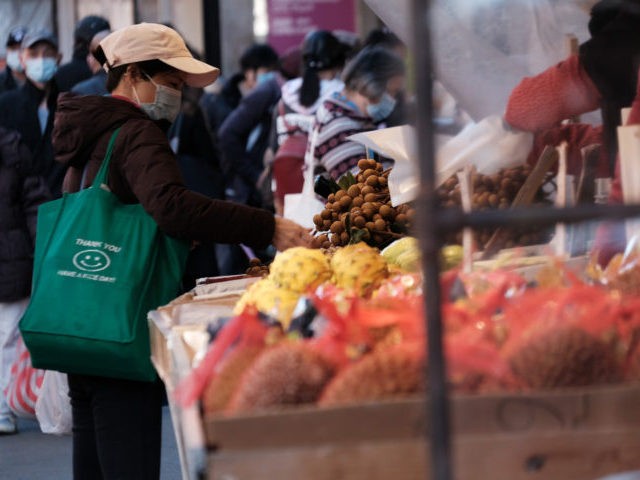World food prices spiked to a ten-year high in October led by “firmer price quotations” for cereals and vegetable oils, the Food and Agriculture Organization of the United Nations (U.N.) reported Thursday.
The Food and Agriculture Organization (FAO) based its findings on its own Food Price Index, “which tracks international prices of the most globally traded food commodities” according to Reuters.
“The FAO Cereal Price Index in October increased by 3.2 percent from the previous month, with world wheat prices rising by 5 percent,” the U.N. agency reported on November 4.
Cereal prices rose in October “amid tightening global availabilities due to reduced harvests in major exporters, including Canada, the Russian Federation and the United States of America. International prices of all other major cereals also increased month-on-month.”
The FAO’s Vegetable Oil Price Index soared by 9.6 percent in October, marking an all-time high.
“The increase was driven by firmer price quotations for palm, soy, sunflower and rapeseed oils,” according to the U.N.
“Palm oil prices rose for a fourth consecutive month in October, largely underpinned by persisting concerns over subdued output in Malaysia due to ongoing migrant labour shortages,” the food agency noted.
Malaysia is the second-largest producer of palm oil in the world, behind only Indonesia. Reuters reported on Malaysia’s labor shortages in September, highlighting their negative impact on the country’s output of palm oil.
“A coronavirus pandemic-induced labour crunch has forced managers of the 2,000-hectare [oil palm tree] estate in Slim River to find creative ways to upkeep their fields, even as prices of the world’s most consumed edible oil are near record highs,” the news agency wrote on September 5.
“The (FAO) price index is up more than a third since last summer — due in large part to a surge in the price of vegoils that are vital for both food preparation and as fat in numerous daily staples,” Reuters observed at the time.
The U.N. said on November 5 it expects world cereal production to reach record levels in 2021.
“Following an upward revision this month on stronger-than-earlier-anticipated global trade of wheat and rice, world trade of cereals is now forecast to expand and reach a new record in 2021/22,” the international organization predicted on Friday.
Despite this anticipation, FAO’s Cereal Supply and Demand Brief released a report on November 5 forecasting “global cereal inventories … heading for a contraction in 2021/22.”
“The forecast for world cereal output in 2021 is now pegged at 2,793 million tonnes [metric tons], down by 6.7 million tonnes since the previous report in October, largely due to cuts to the estimates of wheat production in the Islamic Republic of Iran, Turkey and the United States of America,” the report stated.

COMMENTS
Please let us know if you're having issues with commenting.